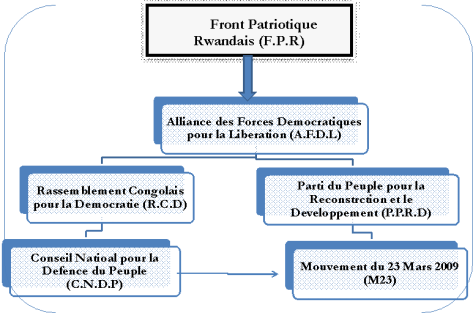Les activités dans les villes de Kinshasa, Goma et probablement celle de Lubumbashi ont été perturbées toute la journée du 19/01/2015. L’appel de l’opposition semble réussi même si sa capacité de mobilisation est au niveau moins inquiétant le pouvoir. La manifestation s’insurge contre la loi électorale qui ordonne le recensement général de la population congolaise avant les élections parlementaires et présidentielles. La question fondamentale et fondée qui se pose est celle liée aux infrastructures congolaises et le temps que ce recensement peut prendre. Compte tenu des conditions des routes et autres moyens de déplacement en RDC, ce recensement pourra inévitablement aller au-delà de 2016. Et alors, la question de la gestion du pays après l’échéance 2016 reste préoccupante pour l’opposition qui croit en une manœuvre de glisser le mandat du président actuel.

Toutefois, à mon entendement, l’appel à la marche doit ne pas répondre à l’ensemble des crises que connait le pays. Car les divergences d’échéances et mandats semblent ne pas être la première préoccupation de cette jeunesse qui sort en masse pour envahir la rue et saccager les magasins d’autrui. Ces mêmes manifestants qui aujourd’hui répond à l’appel de l’opposition pourront facilement ont l’ont pu faire d’une manière ou d’une autre, répondre à l’appel de la partie adverse. Pour dire, la plupart d’entre ces manifestants ne constituent pas une base solide de l’opposition, à laquelle elle peut toujours compter. Il est facile que demain, ces mêmes jeunes envahissent la rue pour s’opposer aux demandes de l’opposition. Conséquemment, il est temps de comprendre comment réagisse la masse ; et ces dirigeants, qu’ils soient de l’opposition ou au pouvoir devraient s’atteler aux vrais problèmes que connait ce pays, particulièrement la jeunesse sans emplois ni espoir de vivre demain.
Revenant aux manifestations d’aujourd’hui, il est vrai que dans les zones à forte concentration populaire où l’opposition a des « fanatiques » ont connu des échauffourées et les mouvements des personnes ont difficilement eu lieu. La ville de Kinshasa était principalement sous haute tension car la présence des policiers et militaires était visible dans les rues. Il y avait même des chars et véhicules transportant des mitrailleuses qui se faisaient voir. Les enfants, écoliers et étudiants ont abandonné les classes par peur d’être attaqués ou en craignant les situations qui pouvaient dégénérer.
Plusieurs bureaux, banques et affaires privées ont fermé pour presque toute la journée. La situation dans Gombe-Ngaliema exprimait une inquiétude car moins de gens étaient concentrées au travail et moins de véhicules dans les Boulevards. L’ensemble des personnes qui ont répondu au travail ont fini par rentrer chez-eux bien que si le transport était aussi perturbé. Pour rejoindre certaines zones, il fallait faire assez de contours car certains itinéraires étaient bloqués. Je suis personnellement passé par une banque, la vigilance était au niveau élevée. La porte qui était ouverte était celle de derrière pour éviter qu’une situation improvisée puisse survenir. En gros, l’opposition semble avoir réussi à perturber la vie normale dans Kinshasa.

Des voitures brulées, des opposants séquestrés, pneus et bureaux incendiés ont été signalés de part et d’autres. Un nombre important des manifestants seraient blessés, une situation qui n’exclut pas qu’il y ait des morts. Selon les informations non encore vérifiées, paraît-il que même le bureau d’Evariste Boshab a été saccagé. Des policiers blessés et un autre qui a été poignardé par les manifestants serait mort. L’usage de la force pour contenir les manifestants se faisait aussi remarquer. Les manifestants s’en sont pris aux magasins des chinois qui s’investissent même dans les commerces en détails à Kinshasa. Il s’agirait, en dehors des réclamations qui seraient peut-être fondées, du temps de faire la survie pour certains manifestants au travers le pillage.
Il est apparent que certains d’entre ces manifestants connaissent le contenu de la loi électorale qui est à l’origine de la grogne. Ils sont pour la plupart embarqués, car il est facile de profiter de la misère que connait la jeunesse désœuvrée de Kinshasa pour la mobiliser. Certaines sources d’informations, qui serait même fiables diraient que la participation se fait moyennant quelques pièces en billet de Francs Congolais. Voila l’erreur des dirigeants qui ne se soucient pas de sa population et la manière dont cela se répercute facilement sur eux. En rendant pauvres, sans espoir et désœuvrés, cette jeunesse peut répondre en n’importe quelle invitation, même celle qui détruirait le pays. L’expérience de la région de grands lacs, celle des années passées dans ce pays et à Kinshasa nous en dit plus.
D’autre part, il est clair que ces manifestants ne sont pas en majorité de partisans de l’opposition, mais plutôt de « fanatiques ». Ils sont ceux-là qui répondent à l’invitation qui paye, sans pour autant considérer le soubassement idéologique. Ils s’en prennent alors aux magasins facilement, bien que l’implantation de ces derniers auraient peut-être pas suivi les normes de l’investissement direct étranger. Une donne que le pouvoir public contrôle difficilement ou reste distrait devant de tels faits d’intérêts publics.
La journée qui a connu le désordre était aussi marquée par la présence du Président Edouardo Dos Santos de l’Angola. Ce dernier était en visite officielle en RDC comme président de la Conférence Internationale de la Région de Grands lacs (CIRGL). Mais aussi sa visite était inscrite dans la coopération bilatérale car d’accords ont été signés entre les deux chefs d’Etats. Pour l’opposition, organiser une manifestation aujourd’hui a tenu en compte aussi la venue du président Angolais. En tout état de cause, le fondement d’une réclamation politique ne doit utiliser les moyens qui nuisent à l’ordre public ; tout comme la manifestation devrait être un droit à exercer dans la dignité. Donc, l’usage de la force de toute part est condamnable. D’une manière particulière, les divergences politiques doivent s’inscrire dans le fond et non sur la forme. Et il serait mieux que les divergences en fond définissent la manière de s’opposer par la forme.
Ntanyoma R. Delphin
Twitter account @delphino12
Email: rkmbz1973@gmail.com










You must be logged in to post a comment.